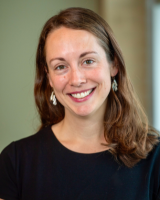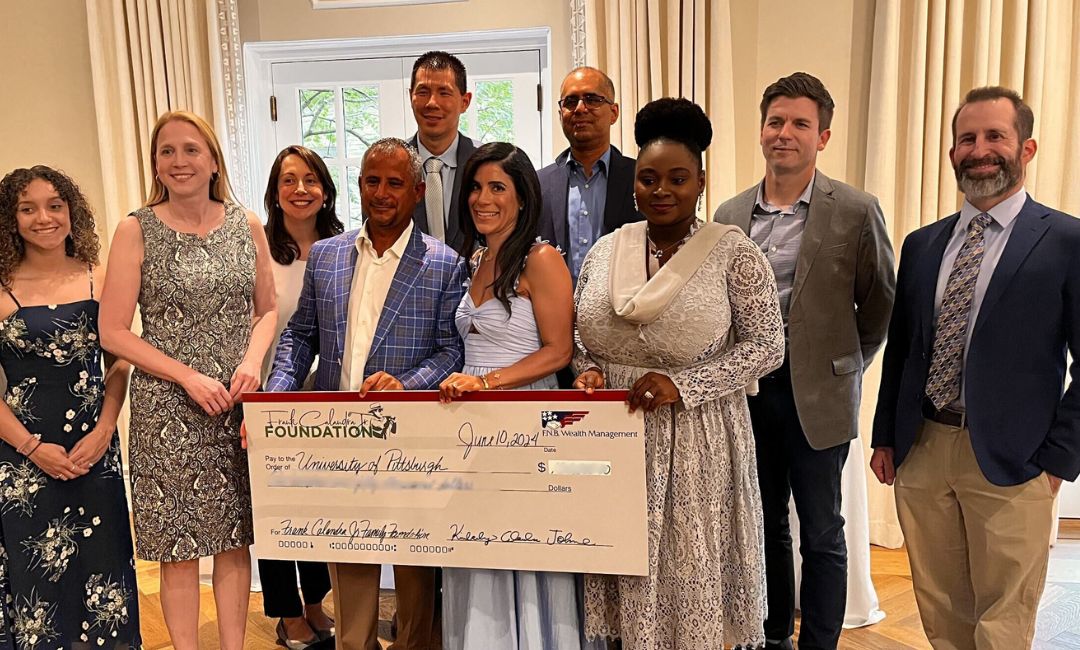by Keightley Amen
Diabetes affects more than 38 million Americans, or 11.6% of the population. If not properly managed, the disease can result in serious consequences, including blindness, kidney failure, amputation, heart attacks, stroke, and more.
This patient population often has difficulty getting the care they need. Those who live in rural areas can face obstacles accessing care from a dedicated diabetes team due to a shortage of local endocrinologists. Access to care is further hindered by the common challenges of taking time off work, finding childcare, and securing transportation.
 Endocrinologist Margaret Zupa, MD, aims to improve access to care for this underserved population by studying a particular approach to telemedicine. The work is possible thanks to a grant from the Frank Calandra Jr. Foundation, which helps raise awareness of diabetes prevention and treatment while also supporting research initiatives.
Endocrinologist Margaret Zupa, MD, aims to improve access to care for this underserved population by studying a particular approach to telemedicine. The work is possible thanks to a grant from the Frank Calandra Jr. Foundation, which helps raise awareness of diabetes prevention and treatment while also supporting research initiatives.
“From being able to find and see a specialist, to being able to afford and obtain the right medicines, to finding a way to take those medicines every single day, to finding ways to change habits and diet that will impact the disease, to getting routine care to monitor for complications—all of these things are absolutely necessary. And each can be very difficult to do,” said Zupa, assistant professor of medicine in the Division of Endocrinology and Metabolism in the School of Medicine at the University of Pittsburgh. “My goal has been to find evidence-based ways to help folks who are managing diabetes, day in and day out, succeed by changing the way we deliver diabetes care.”
The use of telemedicine expanded very rapidly during the COVID-19 pandemic to ensure access to care but limit transmission of the virus. Many clinics have continued to use telemedicine platforms to make it easier for patients to obtain and attend appointments, including endocrinology clinics. However, the technology has limitations, and its effectiveness in patients with complex type 2 diabetes isn’t well understood.
Her research funded by the Frank Calandra Jr. Foundation will focus on addressing certain limitations of telemedicine in diabetes, such as
- how to obtain bloodwork,
- how to read blood glucose results from patients’ home monitoring devices,
- how to check blood pressure, and
- how to tele-educate patients on topics such as new medications to ensure understanding.
This project will test a new approach to deliver comprehensive diabetes care through telemedicine, including
- additional support from diabetes care teams to help patients prepare for video visits,
- diabetes education and self-management support integrated with video visits, and
- check-ins two weeks after visits to ensure that patients have been able to make treatment changes and help troubleshoot any issues that arise.
Zupa’s initial inspiration to become an endocrinologist came from her father, who had type 1 diabetes as she was growing up. Because she has personal experience with the disease, she understands what patients and families are going through, so she aims to help them in a way that aligns with their priorities and values.
“My hope is that this apporach will have two main benefits: first, reducing the burden of receiving endocrinology care for type 2 diabetes by making it easier to access this care, especially for patients who face barriers to coming to clinic,” said Zupa, who sees patients at UPMC Presbyterian and UPMC Passavant. “Second, we want to develop evidence on how best to deliver care through telemedicine so that not only is this care easier to access, but the quality of the care is as good or better than what you would receive in person in clinic.”
Zupa reflected on the importance of philanthropy to support this work and ultimately improve outcomes and quality of life for people living with diabetes.
“Most large research projects are funded by federal agencies or huge foundations, and they tend to focus on projects that already have some supporting evidence and have already been tested on a smaller scale,” she explained. “So philanthropy, like this grant from the Calandra Foundation, allows researchers to really assess the current needs in our local community and patients, design a research program responding to those needs, and build the early evidence needed to move the project to the next phase with larger grants in the future.”
Zupa earned her bachelor’s degree in biology from the University of Rochester and her medical degree from the University of Buffalo Jacobs School of Medicine and Biomedical Sciences. She came to UPMC for a residency in internal medicine and a fellowship in endocrinology.

